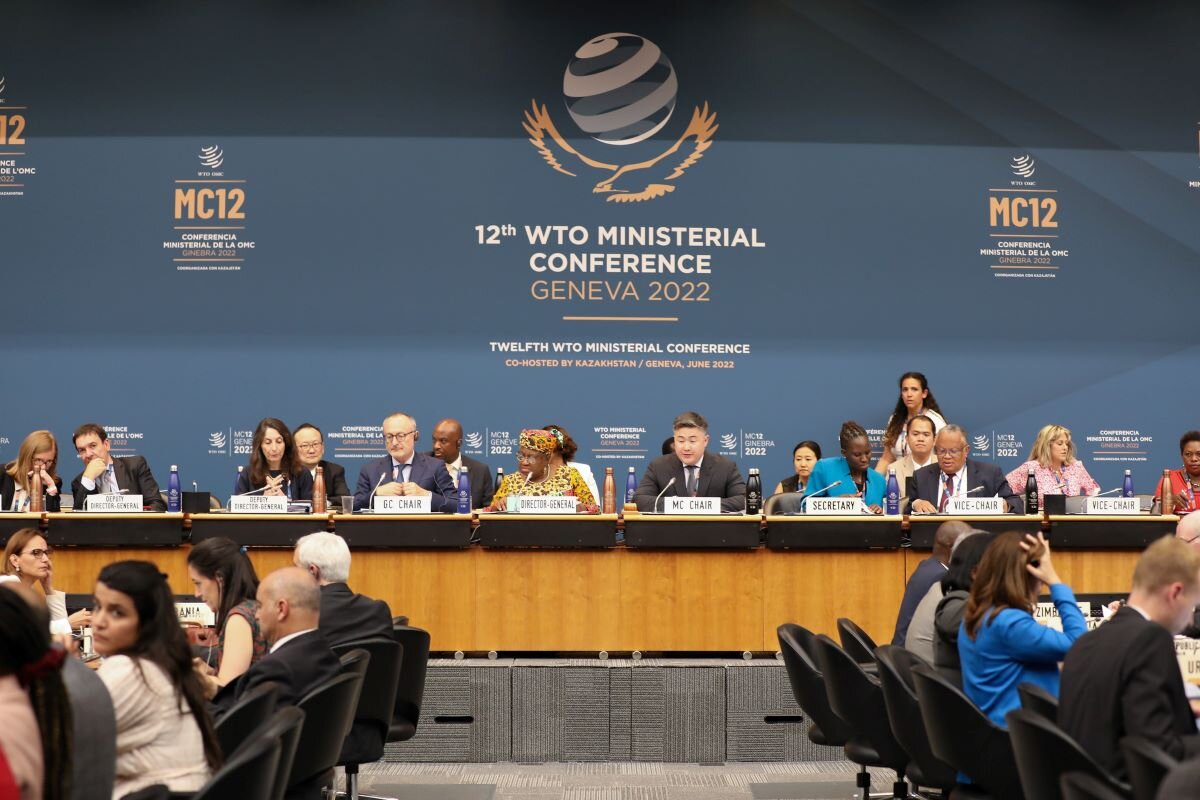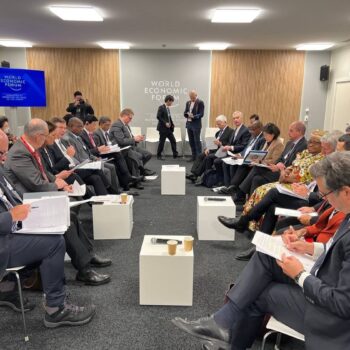The first dialogue on forming a new Coalition of Trade Ministers for Climate took place this week on the margins of the WTO’s 12th Ministerial Conference (MC12). This meeting offers a glimmer of hope for strengthened cooperation on climate, trade and sustainable development, against the backdrop of an otherwise troubled WTO Ministerial Conference.
On the margins of the MC12, the EU, Ecuador, Kenya, and New Zealand invited a diverse group of Trade Ministers from around the world to discuss launching a new, inclusive Coalition of Trade Ministers for Climate.
The proposed Coalition will plug an important gap. As E3G recently pointed out, there is currently no Ministerial-level forum for trade and climate change discussions. The trade and climate communities suffer from a systemic lack of dialogue.
This initiative was first proposed almost two years ago as a means of aligning cooperation on international trade and climate.
There are encouraging signs that the Coalition is being approached in the right way, with a geographically and developmentally balanced co-leadership involving the EU, New Zealand, Kenya and Ecuador as founders.
The initiative attracted interest from a diverse range of countries, from larger trading powers to smaller, vulnerable economies from all regions.
The Coalition is significant because we have seen how similar initiatives in the past have empowered more hesitant Ministries to take bolder climate action. For instance, the Coalition of Finance Ministers for Climate Action has empowered Finance Ministers to better understand their role in the climate transition and forge a common agenda with like-minded partners.
What could it achieve?
The Trade Ministers’ Coalition has a strong potential to create a greater feeling of ownership for climate action among trade policymakers and practitioners.
In time, it should facilitate building a global ‘green trade’ agenda that brings in countries with diverse interests.
Building this agenda will involve raising ambition and a readiness to consider trade-offs and compromises, which Ministers are best placed to explore. Ministers are also able to provide the strategic direction and political momentum that the nascent trade and climate agenda requires.
In time, the Coalition could also pave the way for discussing where updates to international trade rules are needed to shape the economic incentives and regulatory frameworks vital for achieving the Paris Agreement goals.
The latest report from the Intergovernmental Panel on Climate Change (IPCC) listed several possible reform avenues at the WTO, including a ‘climate waiver’, a ´peace clause´, or a joint authoritative interpretation of WTO obligations for climate policies.
However, considering the slow progress achieved at the WTO in other key areas like the food crisis, vaccines, or fisheries’ subsidies, a wholescale alignment of the WTO’s trade rules with climate goals will be challenging in the near term.
Instead, the Coalition of Trade Ministers for Climate presents itself as an important forum outside of the formal WTO process to incubate reform ideas longer-term.
What could be the Coalition’s next steps?
The four co-leads will meet in July to agree on next steps to forge an inclusive Coalition.
To be politically effective, they should mainstream climate into a diverse set of trade policy debates, such as concerns with supply chain resilience, growing energy, food and health insecurity, the urgency of sectoral decarbonisation, and boosted climate finance, especially for countries impacted by the climate crisis.
Ministers started well by articulating a broad and inclusive agenda – emphasising the importance of greater international cooperation so trade can support the Paris Agreement goals as well as sustainable development, environmental sustainability and just transition.
The challenge in future will be to bolster inclusiveness, leadership and trust, while also making contributions to a trade policy agenda that meaningfully increases climate ambition. To achieve this, Ministerial engagement will be essential.
In July, the co-leads could publish a launch statement that articulates a more detailed vision for the Coalition while also drafting a roadmap with priorities for the coming year, identifying key areas where their direct involvement would yield more impact.
They have various options at their disposal, including bolstering effective dialogue at existing venues such as the Trade and Environmental Sustainability Structured Discussions (TESSD). Ministerial-level engagement could support the TESSD high-level stock-taking event scheduled for the end of 2022.
The vision of a Coalition of Trade Ministers on Climate can gather further support to ensure the global trading system delivers for climate action.

